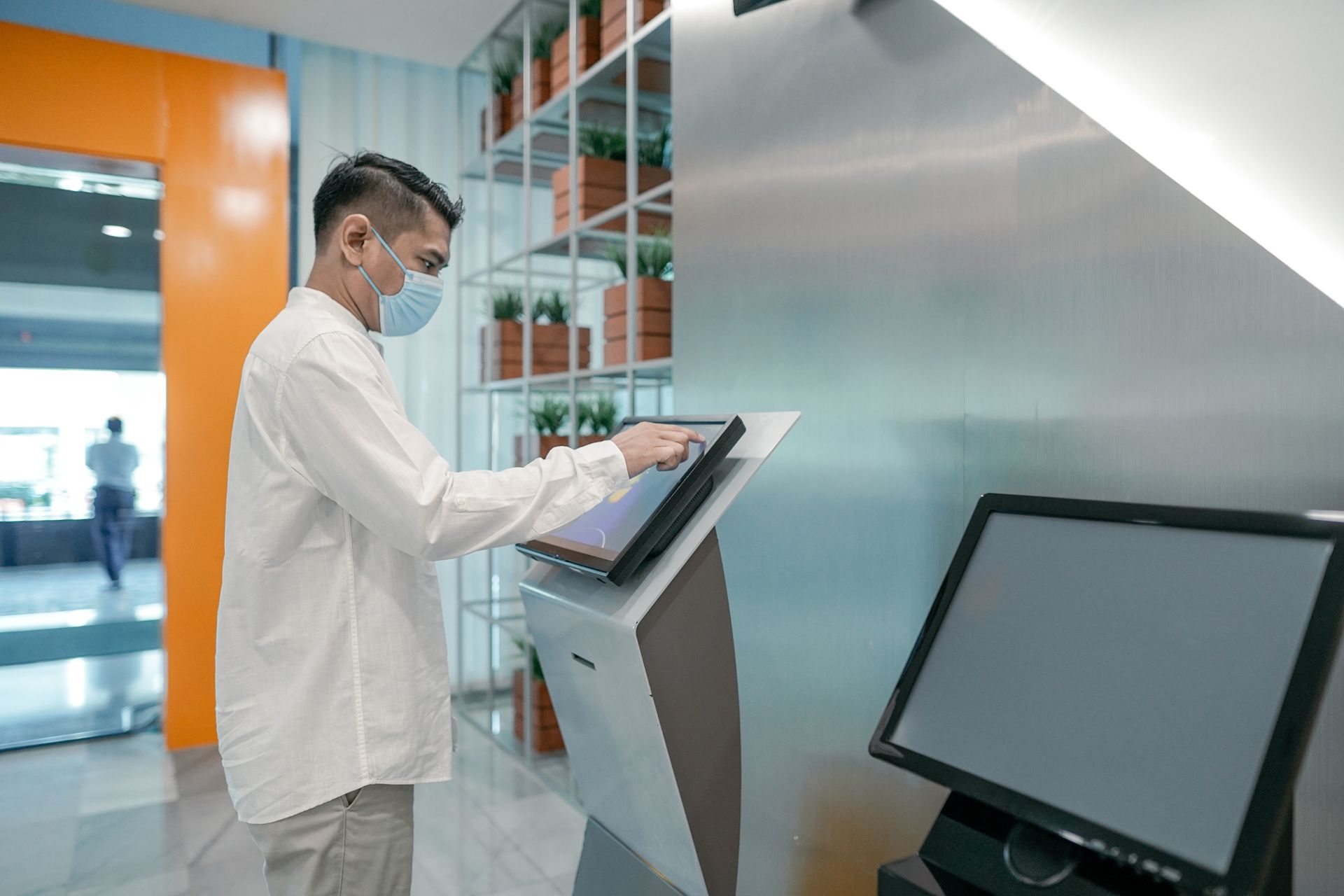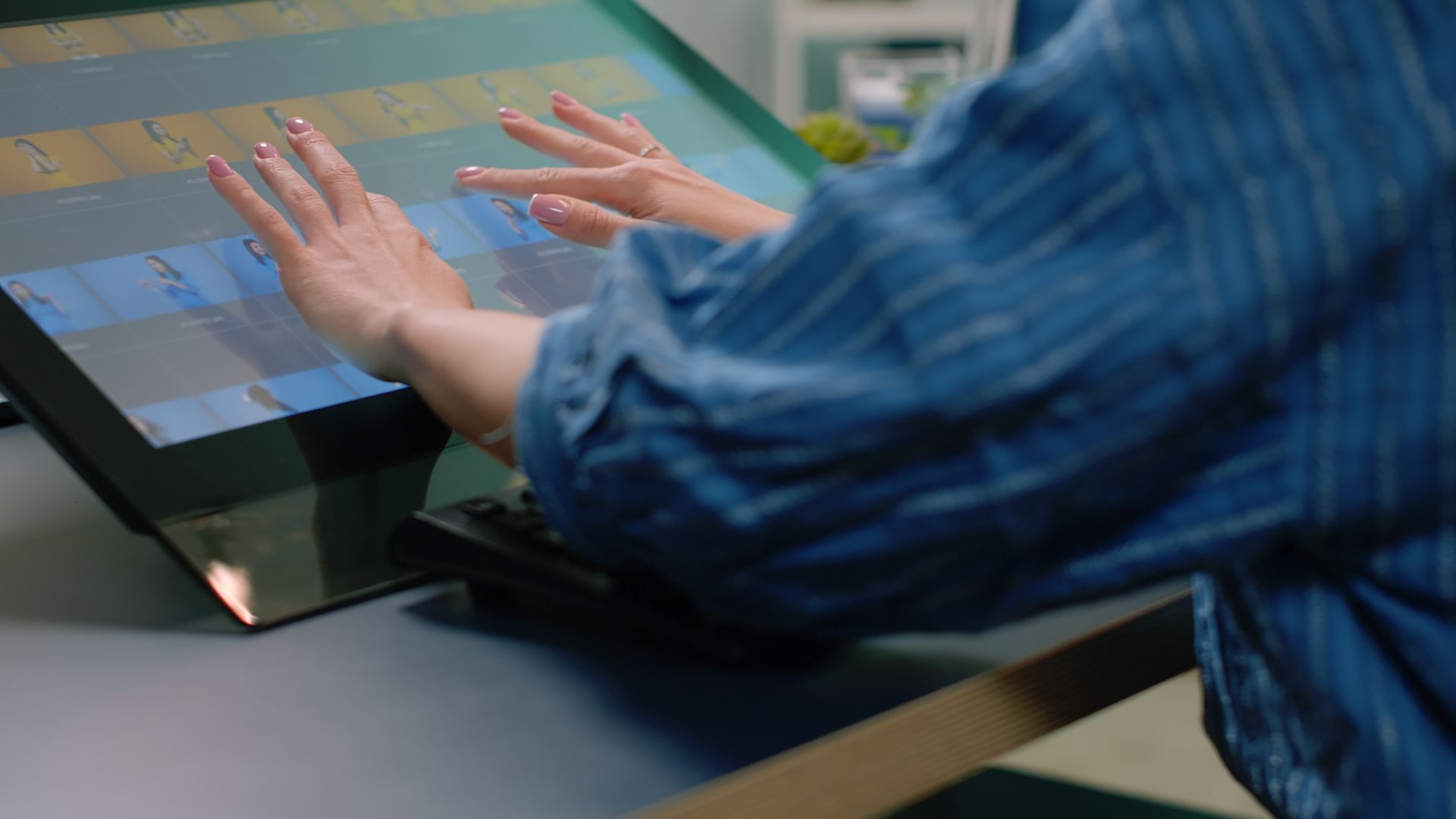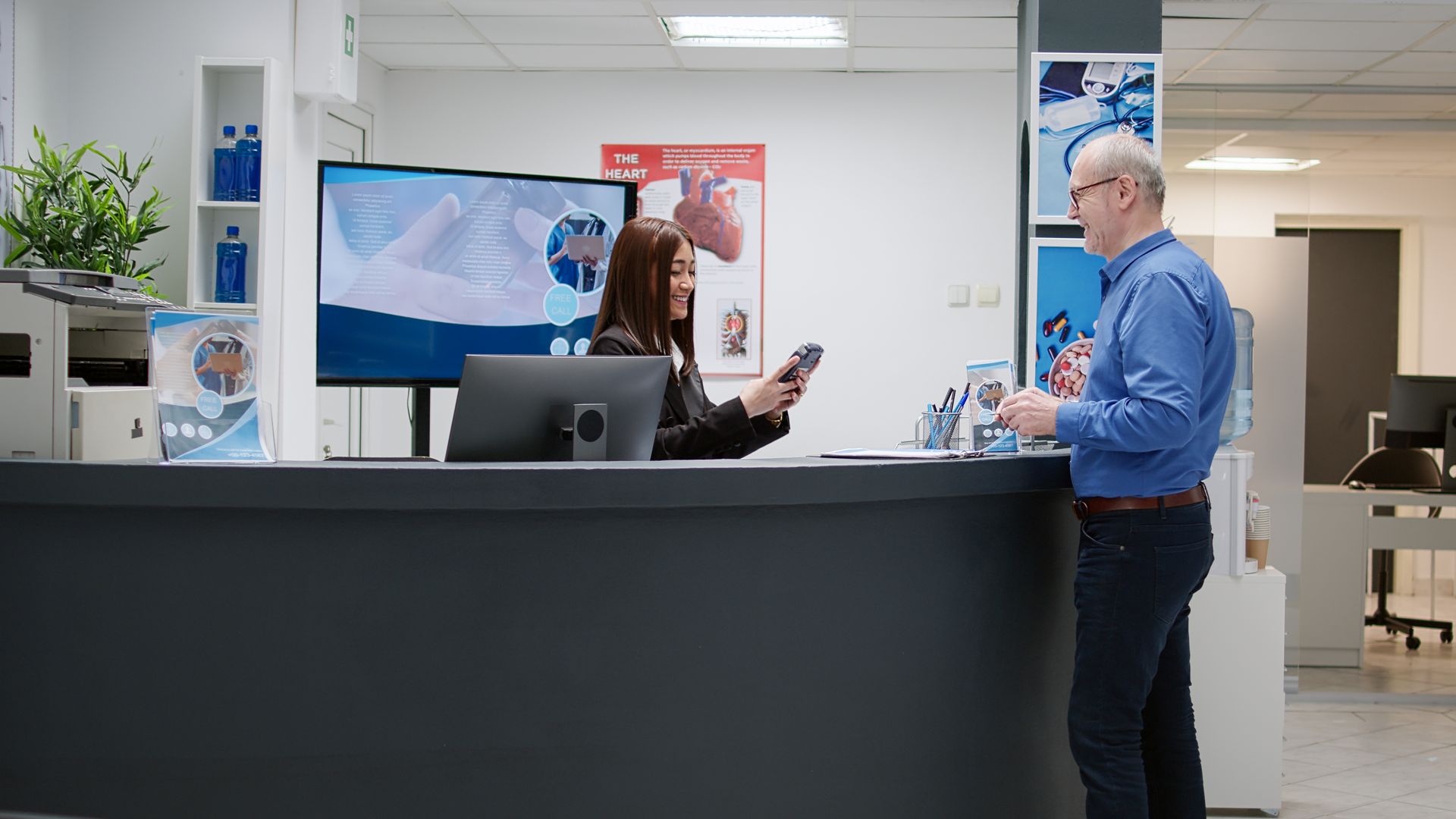Queue Management Trends in UAE Healthcare for 2024
Queue Management Trends in UAE Healthcare for 2024

The UAE healthcare sector is rapidly evolving, with digital solutions playing a critical role in enhancing patient experience and improving operational efficiency. Queue management has become a key focus area, helping to streamline patient flow, reduce waiting times, and optimize service delivery. As we approach 2024, trends such as AI, virtual queues, and telemedicine are revolutionizing how healthcare providers manage patient journeys.
AI-Driven Queue Management Solutions in UAE Healthcare
AI is transforming queue management in UAE healthcare. Through automation, hospitals can now predict future data regarding patient numbers, room availability, staff KPIs, inventory levels, and other important metrics and allocate resources more efficiently. AI-driven systems analyze real-time data to manage patient flow and ensure urgent cases are prioritized. For example, a Dubai hospital implemented AI to enhance daily operations and significantly increase efficiency by reducing the number of unprepared cases handled by up to 70%.. As we enter 2024, more UAE healthcare providers will adopt AI to enhance efficiency and patient care.
Virtual Queue Systems: A Game Changer for Healthcare
Virtual queue systems, which allow patients to check in remotely via smartphones, are revolutionizing healthcare in the UAE. Patients no longer need to wait in crowded clinics, which not only improves their experience but also enhances safety. Virtual queues are also integrating seamlessly with telemedicine services, allowing patients to manage appointments and receive real-time updates. Several hospitals, like Sheikh Khalifa Medical City, have embraced this trend, and it’s expected to grow significantly in 2024.
Telemedicine and Queue Management Integration
Telemedicine has surged in popularity post-pandemic, and integrating queue management into virtual healthcare platforms is a natural progression. In the UAE, many healthcare providers are using telemedicine to reduce patient traffic in hospitals while still offering quality care. Queue management systems now link to telemedicine apps, allowing patients to schedule virtual consultations and receive notifications about appointment times. This trend will further expand in 2024, as telemedicine becomes more integral to healthcare delivery.
Enhancing Patient Experience with Digital Solutions
The rise of digital tools like self-service kiosks and digital signage is reshaping how hospitals in the UAE manage queues. These tools improve patient flow by providing clear instructions and updates on wait times. Self-service kiosks enable patients to check in, schedule appointments, and access personal health records, reducing the need for staff intervention. Hospitals like Cleveland Clinic Abu Dhabi have adopted digital signage to inform patients about their appointment status, further optimizing patient management.
Real-Time Data and Analytics for Queue Management
In 2024, real-time data and analytics will play a vital role in optimizing queue management. These systems provide healthcare administrators with insights into patient flow, peak times, and resource allocation, allowing them to adjust their operations on the go. Predictive analytics, powered by AI, can forecast patient numbers, room availability, staff KPIs, inventory levels, and other important metrics, helping hospitals prepare in advance. UAE hospitals are already leveraging real-time data to minimize bottlenecks and improve service delivery.
Self-Service Kiosks for Streamlining Patient Journeys
Self-service kiosks have become an essential tool in UAE healthcare facilities, enabling patients to complete tasks like registration, appointment scheduling, and payments without assistance. This automation reduces administrative workload and improves patient satisfaction by speeding up routine processes. Hospitals such as Burjeel Medical City in Abu Dhabi have introduced self-service kiosks, contributing to a more efficient healthcare experience.
Personalized Communication and Feedback Systems
Effective queue management goes beyond reducing wait times; it also involves engaging with patients meaningfully. Personalized communication tools, such as SMS notifications and email reminders, help patients stay informed about their appointments. Real-time feedback systems also allow hospitals to collect insights from patients, which are then used to make continuous improvements. For instance, Zulekha Hospital in Sharjah has integrated feedback systems that automatically send surveys to patients post-treatment, enhancing overall service quality.
Multilingual Queue Management Solutions in UAE
Given the linguistic diversity of the UAE, multilingual support in queue management systems is critical. Queue management solutions now offer services in multiple languages, ensuring that patients from various backgrounds can easily navigate the system. This feature enhances patient satisfaction by providing a more inclusive healthcare experience. Many hospitals in Dubai and Abu Dhabi have adopted multilingual queue systems, particularly in areas with a high influx of expatriates.
Reducing Patient Wait Times through Automation
Automation is streamlining queue management by reducing human intervention and minimizing errors. Automated systems assign patients to appropriate queues based on urgency, reducing idle time and enhancing efficiency. UAE hospitals are increasingly adopting automated queue management solutions, especially in emergency departments where timely intervention is crucial. For example, Rashid Hospital in Dubai has implemented an automated system that prioritizes patients based on medical need, drastically reducing waiting times.
Hybrid Queue Systems: Combining Physical and Virtual Solutions
Hybrid queue systems, which blend traditional physical queues with virtual options, are gaining traction in the UAE. These systems allow patients to choose between waiting on-site or joining a virtual queue, giving them greater flexibility. Hybrid systems are particularly beneficial for managing both in-person and telemedicine appointments. Several hospitals in the UAE, like Mediclinic, are using hybrid queue management to accommodate a wide range of patient preferences and needs.
Queue Management in UAE’s Private vs. Public Healthcare Sectors
The queue management approach differs between private and public healthcare providers in the UAE. Private hospitals tend to adopt advanced digital solutions more quickly due to higher budgets, whereas public hospitals often face challenges with large patient volumes. However, the UAE government is investing heavily in digital transformation for public healthcare, and 2024 is expected to bring further alignment between the two sectors in terms of queue management technologies.
Queue Management System Integration with Hospital CRMs
Integrating queue management systems with existing hospital management systems like CRM (Customer Relationship Management) tools is becoming standard practice. This integration helps streamline operations, from patient scheduling to post-visit follow-ups. In the UAE, hospitals that have successfully integrated their queue management systems with CRMs report improved patient tracking, more efficient record-keeping, and enhanced service delivery. The trend toward integration is set to grow as healthcare providers seek to create more seamless and personalized patient experiences.
Compliance with UAE Healthcare Regulations
Healthcare queue management systems in the UAE must comply with local regulations regarding patient data protection and privacy. Hospitals need to ensure that their systems adhere to the UAE's strict data security laws, particularly when handling sensitive patient information. Compliance is a top priority, and in 2024, more healthcare providers will invest in secure and compliant queue management systems to protect both their operations and their patients.
Future Trends in Healthcare Queue Management Beyond 2024
Looking beyond 2024, we can expect even more advancements in healthcare queue management. AI and automation will continue to evolve, Enhancing patient flow, KPIs to improve efficiency and streamlining daily operations to reduce costs.. Wearable technology and the Internet of Medical Things (IoMT) could also be integrated into queue systems, providing real-time health data that can help prioritize patients in need of immediate care. The future holds exciting possibilities for queue management, particularly in the UAE, where innovation and digital transformation are at the forefront of healthcare delivery.
Conclusion
In conclusion, 2024 will be a pivotal year for queue management in UAE healthcare. AI, telemedicine, digital solutions, and hybrid systems are transforming patient experiences, reducing wait times, and enhancing operational efficiency. As healthcare providers continue to adopt these technologies, the patient journey will become more streamlined, ensuring that the UAE remains at the cutting edge of global healthcare innovation.








